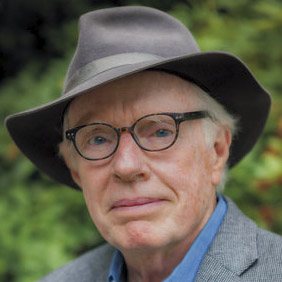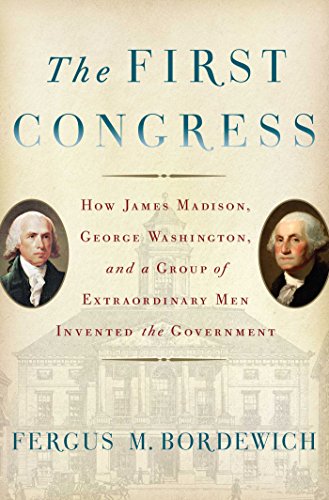Interview with Fergus M. Bordewich


Fergus M. Bordewich
author of "The First Congress: How James Madison, George Washington, and a Group of Extraordinary Men Invented the Government"

Steve Murphy
Executive Producer & Host
Fergus M. Bordewich, author of "The First Congress: How James Madison, George Washington, and a Group of Extraordinary Men Invented the Government"
Fergus M. Bordewich's Website
GROWING UP in northwest Yonkers, Fergus M. Bordewich, an author and journalist, was intrigued by stories that fugitive slaves had founded the nearby neighborhood of Runyon Heights, where many residents were African-American. ”My mother, LaVerne Madigan, was a national figure involved in civil rights, and she often cited the supposed fugitives as models who defied injustice in pursuit of freedom,” he said.
But while researching his fourth book, Bound for Canaan: The Underground Railroad and the War for the Soul of America, Mr. Bordewich, 57, learned that the Runyon Heights story was a myth, ”one of the classic Underground Railroad legends,” he said.
Still, the plight of fugitive slaves had formed ”the warp and woof of my own childhood,” said the author, who lives in Barrytown in Dutchess County. After visiting a community founded by former slaves in Canada in 1998, Mr. Bordewich said, he became determined to find out ”who these people were and what they had endured.”
What he learned while writing Bound for Canaan,published in April by HarperCollins, was that the Underground Railroad was far more than a picturesque story.
”It was the first interracial political movement in American history,” he said. ”It was the first mass movement of civil disobedience after the American Revolution. It was the first political movement born from evangelical religion—evangelical Protestantism—and also the seedbed of the American women’s movement.”
And although the tales about Runyon Heights turned out not to be true, he said, Westchester and its environs are dotted with historical sites along the Underground Railroad. These include the John Jay Homestead in Katonah; a Quaker meeting house in Purchase; the Oblong Meeting House near Pawling; and the Nine Partners Meeting House outside Millbrook.
The Book: "The First Congress: How James Madison, George Washington, and a Group of Extraordinary Men Invented the Government"
ISBN: 1451691939
Get the bookThe little known story of perhaps the most productive Congress in US history, the First Federal Congress of 1789–1791.
The First Congress was the most important in US history, says prizewinning author and historian Fergus Bordewich, because it established how our government would actually function. Had it failed—as many at the time feared it would—it’s possible that the United States as we know it would not exist today.
The Constitution was a broad set of principles. It was left to the members of the First Congress and President George Washington to create the machinery that would make the government work. Fortunately, James Madison, John Adams, Alexander Hamilton, and others less well known today, rose to the occasion. During two years of often fierce political struggle, they passed the first ten amendments to the Constitution; they resolved bitter regional rivalries to choose the site of the new national capital; they set in place the procedure for admitting new states to the union; and much more. But the First Congress also confronted some issues that remain to this day: the conflict between states’ rights and the powers of national government; the proper balance between legislative and executive power; the respective roles of the federal and state judiciaries; and funding the central government. Other issues, such as slavery, would fester for decades before being resolved.
The First Congress tells the dramatic story of the two remarkable years when Washington, Madison, and their dedicated colleagues struggled to successfully create our government, an achievement that has lasted to the present day.